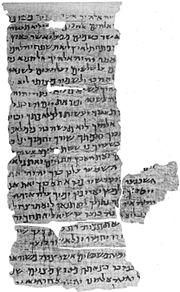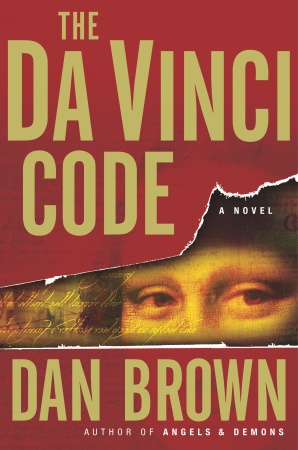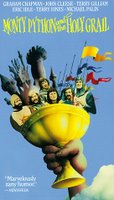
Having long been a sceptic of of the Holy (& often hypocritical) Church of Rome, as well as a avid history buff, I am frequently intrigued by tales & accounts regarding it's origins & past. Whether it be the true history of Christmas, The "Holy" Crusades, The Holy Grail, or any other Catholic mythology, they all seem to peak my interest. Not for the meaning why the Church of Rome would intend, but mainly due to the fact that not only are most Catholic beliefs built on...let's say less than the full truth. In fact, I believe that the Catholic Church has, for almost 2,000 years, hidden truths & persecuted others in an attempt to further it propogate it's own power...& it has done so very successfully at that...
Now you must understand that I am not saying that I do not believe in the baby Jesus or his relationship to the Almighty. I do, as well as many of the other histories surrounding him & his equantances. However, with that being said, I also believe that the Catholic Church has committed an unthinkable amount of crimes against an even greater amount of people through-out history in order to enhance it's degree of power over the course of civilization following the death of Christ.
Please do not be deterred by the religous & historical rhetoric which follows shortly. Many of you may not be familiar with my fondness of the histories, but there is actually little else that peaks my interest & passion to the extent to which they do. Although I may ramble a bit, please humor me & read on...I'll try to get back to my usual humor towards the end...
But I digress...I will most likey delve into a few of the mysteries of the Church of Rome over the coming weeks, such as Christmas not really being the birthday of Christ, Papal Infaliablity, The Knights Templar, or man's single greatest edited work (& also the top selling book of all time)...The Bible...among other topics...Don't worry, they'll be spread out as not to bore...

But tonight, I would like to discuss what is the backbone of most Judeo-Christian ethics...The Ten Commandments.
Let me first say that I do, generally speaking, believe that the Commandments are how one should go about there lives. The famed Ten Commandments (also referred to as the "Decalogue"), as given unto Moses as told in the Book of Exodus (20: 2-17), are a list of religious and moral imperatives which, according to religious tradition, were written by God and given to Moses on Mount Sinai in the form of two stone tablets. However, did you know that there were/are actually two different sets of Ten Commandments?

The Decalogue is actually comprised of two distinct lists given in the Torah (aka- Old Testament): The Ethical Decalogue (the conventional commandments we all know & love) & the Ritual Decalogue.
The Ritual Decalogue is the list of commandments in Exodus 34. As they concern points of ritual, rather than ethics, they are viewed as having minor significance compared to the Ethical Decalogue. Consequently, although the Ritual Decalogue appears in the text at the point where God inscribes the Ten Commandments into the two stone tablets, and it is they rather than the Ethical Decalogue which are identified as the Ten Commandments, it is the Ethical Decalogue which is commonly believed to be inscribed on the tablets.
[1]Due to the lack of religious importance placed on the Ritual Decalogue in modern times, the majority of discussion concerning it exists within academic circles. While a portion of the decalogue, discussing the position of other gods, idols, and a day of rest, is similar to the Ethical Decalogue, the majority of the commandments are quite different. To paraphrase,
- Worship no other god than Yahweh: Make no covenant with the inhabitants of other lands to which you go, do not intermarry with them, and destroy their places of worship.
Yahweh is Hebrew name for the God of Israel, or The Tetragrammaton. The Tetragrammaton (Greek: τετραγράμματον; "word with four letters") is the usual reference to the Hebrew name for God, which is spelt(in the Hebrew Alphabet): י י (yodh) ה (heh) ו (vav) ה (heh) or יהוה (YHWH). It is the distinctive personal name of the God of Israel. In Judaism, the Tetragrammaton is the ineffable name of God, and is therefore not to be read aloud. In the reading aloud of the scripture or in prayer, it is replaced with Adonai ("My Lords", commonly rendered as "the Lord"). Other written forms such as י (yod) ו (vav) (YW or Yaw); or י (yod) ה (heh) (YH or Yah) are read in the same way. Jehovah is an English transcription of the Biblical Hebrew name יְהוָֹה. Today the English transcription "Jehovah" is used by many English speaking Protestant Christians and also by Jehovah's Witnesses, however, most modern scholars believe that the English transcription "Jehovah" does not accurately represent God's name in the English language. Some, but not all modern scholars believe that the original pronunciation of the Tetragrammaton may have been lost somewhere in the first millennium, when the Jewish people stopped saying the Name, out of fear of violating the commandment "You shall not take the name of YHWH your God in vain" (Exodus 20:7). Instead of YHWH or Jehovah, the expression "the LORD" (with the word "LORD" in all capital letters) has commonly been used in most English-language Bible translations.[1]
ineffable name of God, and is therefore not to be read aloud. In the reading aloud of the scripture or in prayer, it is replaced with Adonai ("My Lords", commonly rendered as "the Lord"). Other written forms such as י (yod) ו (vav) (YW or Yaw); or י (yod) ה (heh) (YH or Yah) are read in the same way. Jehovah is an English transcription of the Biblical Hebrew name יְהוָֹה. Today the English transcription "Jehovah" is used by many English speaking Protestant Christians and also by Jehovah's Witnesses, however, most modern scholars believe that the English transcription "Jehovah" does not accurately represent God's name in the English language. Some, but not all modern scholars believe that the original pronunciation of the Tetragrammaton may have been lost somewhere in the first millennium, when the Jewish people stopped saying the Name, out of fear of violating the commandment "You shall not take the name of YHWH your God in vain" (Exodus 20:7). Instead of YHWH or Jehovah, the expression "the LORD" (with the word "LORD" in all capital letters) has commonly been used in most English-language Bible translations.[1]
- Observe the Feast of Unleavened Bread for seven days in the month of Abib.
- Sacrifice firstborn male animals to Yahweh. The firstborn of a donkey may be redeemed; redeem firstborn sons.
- Do no work or even kindle a fire on the seventh day. Anyone who does so will be put to death.
- Observe the Feast of First Fruits and the Feast of Ingathering: All males are therefore to appear before Yahweh three times each year.
- Do not mix sacrificial blood with leavened bread.
- Do not let the fat of offerings remain until the morning.
- Bring the choicest first fruits of the harvest to the Temple of Yahweh.
- Do not cook a goat in its mother's milk.[1]
These Commandments just don't have the same ring to them, do they...
The more commonly known Ten Commandments, or Ethical Decalogue, are basically God's laws by which one should live one's life...or so the Church would teach. Each religion interperets the Ten Commandments with their own slight variation.
The following is the text of the commonly accepted (by Christian and Jewish authorities) commandments as found in the book of Exodus:
- "God spoke all these words, saying: I am the Lord your God,who brought you out of Egypt, from the place of slavery. Do not have any other gods before Me. Do not represent [such] gods by any carved statue or picture of anything in th
 e heaven above, on the earth below, or in the water below the land. Do not bow down to [such gods] or worship them. I am God your Lord, a God who demands exclusive worship. Where My enemies are concerned, I keep in mind the sin of the fathers for [their] descendants, to the third and fourth [generation]. But for those who love Me and keep My commandments, I show love for thousands [of generations]. Do not take the name of God your Lord in vain. God will not allow the one who takes His name in vain to go unpunished. Remember the Sabbath to keep it holy. You can work during the six weekdays and do all your tasks. But the seventh day is a Sabbath to God your Lord. Do not do anything that constitutes work. [This includes] you, your son, your daughter, your slave, your maid, your animal, and the foreigner in your gates. It was during the six weekdays that God made the heaven, the earth, the sea, and all that is in them, but he rested on the seventh day. God therefore blessed the Sabbath day and made it holy. Honor your father and mother. You will then live long on the land that God your Lord is giving you. Do not commit murder. Do not commit adultery. Do not steal. Do not testify as a false witness against your neighbor. Do not be envious of your neighbor's house. Do not be envious of your neighbor's wife, his slave, his maid, his ox, his donkey, or anything else that is your neighbor's." (Exodus 20)[1]
e heaven above, on the earth below, or in the water below the land. Do not bow down to [such gods] or worship them. I am God your Lord, a God who demands exclusive worship. Where My enemies are concerned, I keep in mind the sin of the fathers for [their] descendants, to the third and fourth [generation]. But for those who love Me and keep My commandments, I show love for thousands [of generations]. Do not take the name of God your Lord in vain. God will not allow the one who takes His name in vain to go unpunished. Remember the Sabbath to keep it holy. You can work during the six weekdays and do all your tasks. But the seventh day is a Sabbath to God your Lord. Do not do anything that constitutes work. [This includes] you, your son, your daughter, your slave, your maid, your animal, and the foreigner in your gates. It was during the six weekdays that God made the heaven, the earth, the sea, and all that is in them, but he rested on the seventh day. God therefore blessed the Sabbath day and made it holy. Honor your father and mother. You will then live long on the land that God your Lord is giving you. Do not commit murder. Do not commit adultery. Do not steal. Do not testify as a false witness against your neighbor. Do not be envious of your neighbor's house. Do not be envious of your neighbor's wife, his slave, his maid, his ox, his donkey, or anything else that is your neighbor's." (Exodus 20)[1]
- The first 3 commandments govern the relationship between God and humans
- The next group of commandments govern public relationships between people
- The last two commandments govern private thoughts
So in the spirit of understanding the proper interpritation...
- "Thou shall have no other gods besides Me..." - That's right...Tiger Woods is NOT a god...
- "Thou shalt not make a sculpted image or any likeness of what is in the heavens above..." - yeah...I hate bobbleheads too...
- "Thou shall not swear falsely by the name of the LORD..." - I hope he doesn't consider what my wife was moaning last night to be in vain...
- "Remember the Sabbath day and keep it holy" - Golf is holy...right?
- "Thou shall honour your father and your mother..." - Sorry...got nothin' for this one
- "Thou shall not murder" - Unless you call if the Holy Crusades, the Holy Inquisition, or simply refuse to acknowledge that it occurred...regardless of the atrosities...point in case, the Vatican's stance during The Holocaust:
- In October 1941 Harold Tittman, a U.S. delegate to the Vatican, asked Pope Pius XII to condemn the atrocities against Jews; Pius replied that the Vatican wished to remain "neutral,"
- In May 1942, Kazimierz Papée, Polish ambassador to the Vatican, complained that Pius had failed to condemn the recent wave of atrocities in Poland; when Cardinal Secretary of State Maglione replied that the Vatican could not document individual atrocities.
- In August 1942, by which time it has been estimated than 200,000 Ukrainian Jews had been killed, in response to a letter from Andrej Septyckyj, Pius advised Septyckyj to "bear adversity with serene patience" .
- On 18 September 1942, Monsignor Giovanni Battista Montini (who would later become Pope Paul VI), wrote to Pius, "the massacres of the Jews reach frightening proportions and forms." The Cardinal Secretary of State of the Vatican replied that the "rumors" about crimes committed against Jews could not be verified.
- In December 1942, when Tittman Cardinal Secretary of State Maglione was asked if the Pius would issue a proclamation simialar to the Allied declaration "German Policy of Extermination of the Jewish Race," Maglione replied that the Vatican was "unable to denounce publicly particular atrocities."
- In late 1942, when it became clear that an allied victory over the Nazis was inevitable, Pius XII advised German and Hungarian bishops that speaking out against the massacre of the Jews would be politically advantageous.
- On April 7, 1943, Cardinal Tardini, one of Pius’s closest advisors, told Pius that it would be politically advantageous after the war to take steps to help Slovakian Jews [1]
- Thou should not commit adultery" - funny, it doesn't mention anything about young alter boys...
- "Thou shall not steal." - My wife must not have heard this one...she stole my heart...
- "Thou shall not bear false witness against your neighbor" - Unless they're a witch...
- "Thou shall not covet..." - The fear of every spoiled little only-child...("I want one...")
Sorry if this was more of a serious rant than I am normally prone to. I've been on a kick like since since I started reading
The Da Vinci Code...Props to Wikipedia...


[1]: Wikipedia
 I don't know why I was supprised. Everyone always says that when a movie is made out of a novel, it is always dissappointing. I guess it is just the optimist in me...I literally could not
I don't know why I was supprised. Everyone always says that when a movie is made out of a novel, it is always dissappointing. I guess it is just the optimist in me...I literally could not  put the book down (finishing it in only a week), & couldn't wait to see the movie...but alas...I could not have been more dissappointed...
put the book down (finishing it in only a week), & couldn't wait to see the movie...but alas...I could not have been more dissappointed... at right of The Louvre, with it's 2 famous pyramids - the first being more obvious than the second, which is inverted). They skipped over key plot points & made it seem that Langdon recognized the Vitruvian Man immediately, which he did not in the novel. It was actually Sophie that enlightened Langdon on the fact, after he had lamented over it for some time (nor did he discover the backwards writing of Da Vinci , either...another point discovered by the Sophie in the novel). The entire Louvre portion seemed careless, if you ask me.
at right of The Louvre, with it's 2 famous pyramids - the first being more obvious than the second, which is inverted). They skipped over key plot points & made it seem that Langdon recognized the Vitruvian Man immediately, which he did not in the novel. It was actually Sophie that enlightened Langdon on the fact, after he had lamented over it for some time (nor did he discover the backwards writing of Da Vinci , either...another point discovered by the Sophie in the novel). The entire Louvre portion seemed careless, if you ask me. part about her grandmother, & totally omitted her long lost brother, not to mentioned the way that they met...
part about her grandmother, & totally omitted her long lost brother, not to mentioned the way that they met...
 I will say this, however...for those of you who haven't the time to read & will not take up the novel, I highly suggest seeing the film. It is a story of utter fascination for most everyone & can't help to put questions in your head about everything that you grew up believing in...although many historians & critics argue the factual content, you can't help but think "well...why not?"...
I will say this, however...for those of you who haven't the time to read & will not take up the novel, I highly suggest seeing the film. It is a story of utter fascination for most everyone & can't help to put questions in your head about everything that you grew up believing in...although many historians & critics argue the factual content, you can't help but think "well...why not?"...







